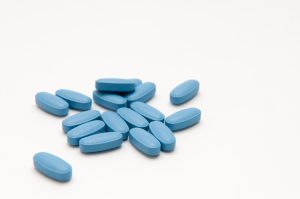
In one case, a 54-year-old woman had multiple sclerosis and died of complications associated with PML. The second case involved a 64-year-old woman with psoriasis who was treated for two years with a medication containing dimethyl fumarate as an active ingredient.
Researchers suggest that drugs containing dimethyl fumerate should remain on the market, because the risk of PML is low. Bruce Bebo, executive vice-president of research for the National Multiple Sclerosis Society, said, “It’s something to be concerned about and something to pay attention to. But from what we know right now, the occurrence of PML appears to be pretty low for Tecfidera.” Tecfidera is a brand name drug form of dimethyl fumarate.
PML is caused by the JC virus, which is commonly found in the human body but does not typically cause harm. If a person’s immune system is compromised, that is when complications occur and the JV virus flares up.
The JV virus strips the nerve cells off their insulation. As a result, they are unable to carry the brain signals. The disease causes progressive weakness, paralysis, changes in vision and speech, difficulty thinking, and memory problems.
Dr. Abby Van Voorhees, chair of the National Psoriasis Foundation Medical Board, said, “I would certainly say this has made me feel like I would follow a patient’s white blood cell counts. If your counts are low, they make you more vulnerable to infection in general. Since PML is an infection, it would make you more susceptible to that as well.”
Dimethyl fumarate works by decreasing inflammation and preventing nerve damage that is causing symptoms in multiple sclerosis.
Biogen wrote, “This is the single case of PML associated with Tecfidera. Based on experience in over 135,000 patients with MS treated with Tecfidera, there is no overall increased risk for serious infections, including opportunistic infections, for Tecfidera.”
It’s been noted that MS patients who develop PML take higher than normal dosages of Tecfidera.
Treatment options for multiple sclerosis and psoriasis
Treatment options for psoriasis include taking daily baths to remove scaly skin, using moisturizer regularly, exposing your skin to small amounts of sunlight, minimizing alcohol consumption, and avoiding psoriasis triggers such as smoking, stress, and injuries to the skin.
Treatment for multiple sclerosis is lifelong, and although the condition cannot be cured, the treatment aims to minimize the symptoms and to allow the patients to live as normal of a life as possible. Some treatment methods include corticosteroids and plasma exchange, beta interferons, Glatiramer acetate, Dimethyl fumarate, Fingolimod, Teriflunomide, Natalizumab, Alemtuzumab, and Mitoxantrone, which all help to reduce the likelihood of relapses.
Other treatment methods include physical therapy to improve mobility, muscle relaxants, medications to reduce fatigue, and other medications like antidepressants, medications to control the bowels and bladder, and medications to improve sexual function.
Exercise, meditation, yoga, and acupuncture are also recommended as a means to reduce stress and improve overall mental and physical well-being.